Struggling to rebuild their lives after prison, homeless ex-offenders find hope in a halfway house in Geylang
The shelter under HCSA Community Services offers these ex-offenders a six-month residential programme and a space to land on their feet as they reintegrate into society.
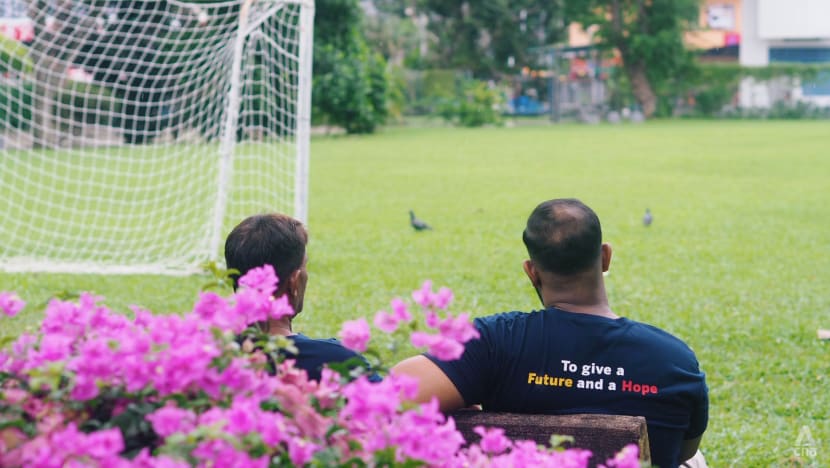
Mr Kalaychelvam Vairappan (left), who lives in a residential shelter for homeless male ex-offenders under HCSA Community Services, with case worker Nurdin Nashrullah. (Photo: CNA/Grace Yeoh)
SINGAPORE: Towards the end of his latest and longest – seven-and-a-half years – stint in prison in 2019, Mr Kalaychelvam Vairappan received a printed letter with no return address. It was from his children.
“You should know why we never reply all your letters. We are living day by day. So, please, when you come out, give my mother divorce,” the father-of-two recounted the letter’s contents to CNA.
“So I thought, since you want, (I will) give lah,” he said.
Mr Kalay, as he’s better known, said his ex-wife did not visit him in prison during his most recent sentence for drug abuse. Since the divorce, he also has not been in contact with his son and daughter, aged 31 and 27 respectively.
But the 59-year-old warehouse assistant – whose brushes with the law began when he stole a bicycle at 13 and was sent to the Singapore Boys’ Home – is hopeful that will change once his family sees that he is determined not to return behind bars.
He is, after all, no stranger to second chances. Many have been given by the place he calls home.
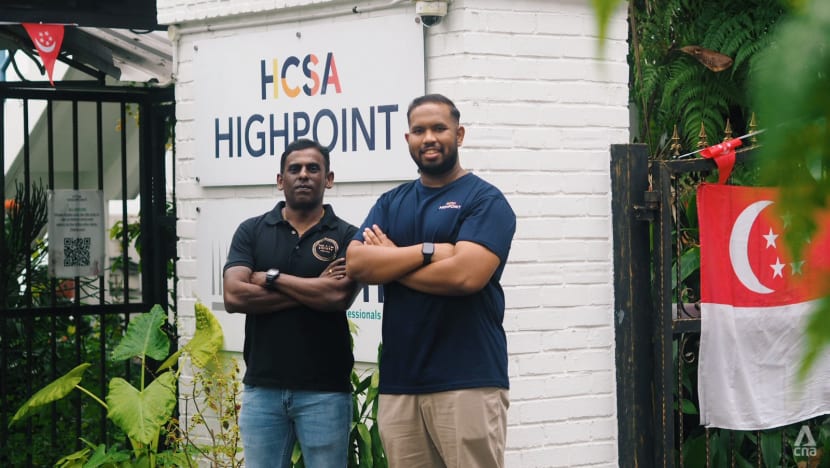
A HALFWAY HOUSE, A FRESH START
In July last year, Mr Kalay began his second stay at HCSA Community Services’ residential shelter for homeless male ex-offenders in Geylang. He had returned to seek refuge when he found it difficult to live with a housemate in a rental flat.
His current stay, almost a year long, is also twice that of most other residents.
The shelter’s six-month programme, HCSA Highpoint Halfway House, supports ex-offenders in their reintegration into society. Residents who need to extend their stay are assessed on a case-by-case basis depending on various factors like conduct, said case worker Nurdin Nashrullah.
For instance, after leaving Highpoint, many residents move to a flat under the Housing and Development Board’s (HDB) Public Rental Scheme, he added. But based on his experience, applications tend to take about eight to nine months to be approved, and even longer for one to be allocated a space, said Mr Nurdin.
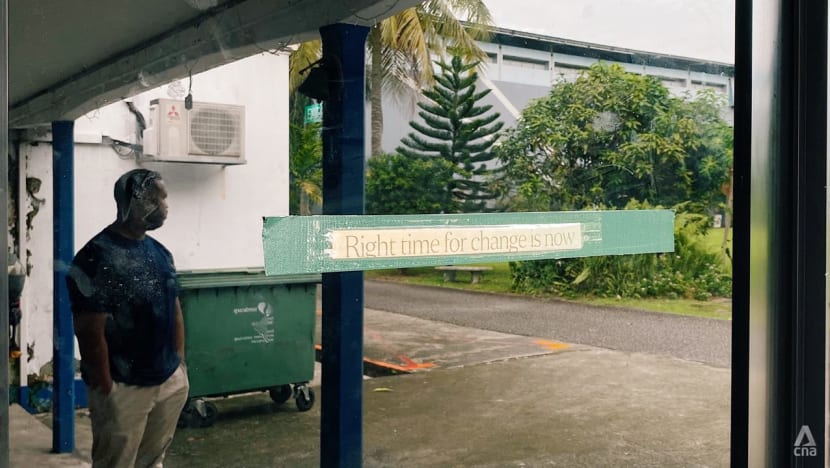
First-time residents, who walk in or are referred by prisons and medical institutions, have to undergo an initial assessment before they can get a spot at the shelter. The shelter sees around 30 to 50 referrals a month, and aims to take in about seven to 10 men each month.
Admission criteria require them to be Singaporean, have been released from prison within the last three years and possess basic English proficiency so they can understand the programme, added Mr Nurdin.
Treatment criteria, on the other hand, cover “how open, willing and authentic they are during the interview and in terms of their recovery progress”.
Despite the stringent criteria, Mr Kalay wasn’t asked to leave even after getting caught drinking and smoking. He realises that he would have been “straight away kicked (out)” at most other places with his transgressions.
“I was very (ashamed). They trust me then I go and do this nonsense. I learnt that people really care for you. But if you don’t care for yourself, (that is a) problem already,” he said.
Mr Kalay is determined to keep on the straight and narrow this time. Admitting that he used to throw around the word “change” loosely, he now knows “who I am (and) why I’m here” and what he needs to change about himself before he leaves the shelter.
Some things have already changed. For one, he now enjoys running, participating in a 5km run in June which made him “very happy”.
He even planned to take part in HCSA’s fundraising challenge “Everesting for Second Chances” – open to the public until the end of July – in support of ex-offenders before work got in the way.
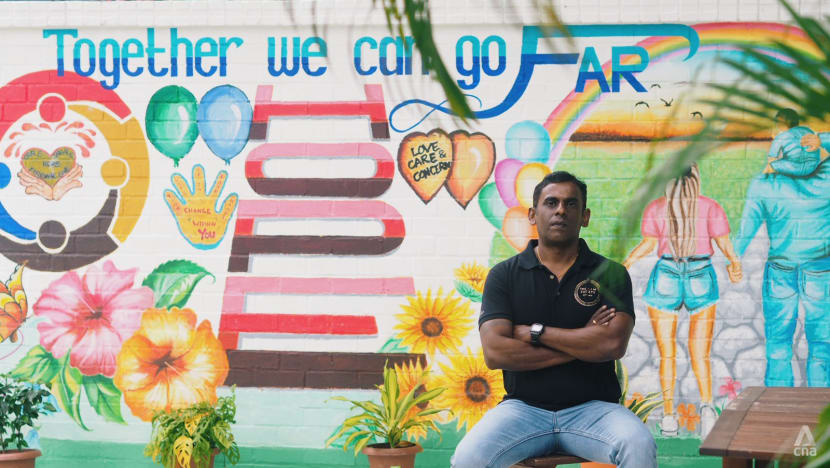
HELPING OTHERS, HELPING THEMSELVES
But a fresh start after incarceration is not without hurdles, and few are more familiar with the challenges that lie ahead than former resident Ram Weera Singam, who visits HCSA about once or twice a month to support current residents.
The 46-year-old, who now works as a driver, credits the Highpoint programme for helping him rebuild his relationship with his family. Its structure, which includes family bonding activities, instilled a sense of discipline in him.
He now wakes up at 4am every day to run – a hobby he only picked up during his stay at the shelter.
Whenever Mr Ram was released from prison in the past, he would return to his old habits until another urine test revealed his drug abuse. He discovered Highpoint during his most recent release and checked himself into the shelter.
Like Mr Kalay, he, too, promised himself that his stay would mark the beginning of a new chapter.
“I come in for a purpose. I set up my mind that if I come here, I must change myself to come back to square one. So I become confident that I will change,” he said.
Mr Ram’s chequered past including for drug-related offences is not often met with open arms in society – but this works to his advantage as a member of Act in Motion Society, an aftercare programme for ex-offenders. Having common ground with many residents allows him to bond with them.
“Outside, sometimes I cannot talk to normal people because my understanding is not so good … (When you) tell them you’re a drug addict, everything they see is your fault. (But when) I come here and tell them I’m a drug addict, they understand,” he said.
He wants to give current residents the confidence and hope that “there are people who are willing to help”. After all, he said, “I changed my life.”
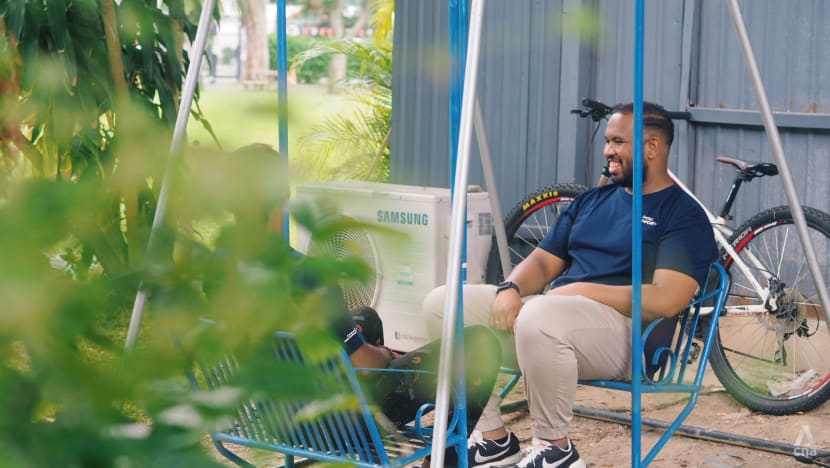
Seeing former residents like Mr Ram progress in life is most rewarding for Mr Nurdin.
The 27-year-old recalled a couple of residents who moved into the shelter “fresh from prison or within a few days after being released”, with no employment or housing. But towards the end of their stay or even after they leave, “they get married or they invite (the staff at the shelter) to their weddings”.
Mr Nurdin, who holds a degree in psychology, added that ex-offenders are “people who make certain mistakes or decisions based on their circumstances”.
“To give them support to reintegrate is great, because ultimately, they are not bad people. They’re just put in a situation where they have to do certain things … They’ve paid their dues and everything. It’s good for them to work on their reintegration (into society),” he said.
EMPLOYMENT, ACCOMMODATION ISSUES
Even as residents are rebuilding relationships with their loved ones, they may also have to jump through multiple hoops with employment and accommodation, said Mr Nurdin, who experiences the stigma secondhand.
The shelter works with partners who empathise with their residents and even employ others with similar backgrounds, providing them extra payment or overtime allowance. But there are employers who “take advantage” of the residents – many of whom say they are resigned to fate.
“For example, there was one who wasn’t paid what was agreed upon in the contract. Because I think the employers know that these are people who don't have much choice when it comes to work,” Mr Nurdin said.
“Or these guys don't actually have the free time to pursue or challenge these things that have been done to them. They don’t have time to go to MOM (Ministry of Manpower) … every sick day matters to them because you don't get paid for the day.”
With accommodation, Mr Nurdin said some who are waiting for a home under HDB’s Public Rental Scheme have also expressed concerns that they could slide back into their former life if they have an unsuitable flatmate.
While many would “rather apply alone”, Mr Nurdin said, the scheme doesn’t offer single occupancy flats.
Additionally, most applicants to the rental scheme have an income of below S$1,500 – but some residents earn S$1,600 to S$1,700, which is “not much more”, he said.
HDB says on its website that it does not reject or accept applicants based solely on income, as applications are “reviewed holistically, taking into account household size and individual circumstances”.
Open market rentals, which Mr Nurdin noted are priced at about S$500 a bed, are “really financially unsuitable” for residents. “The only other alternative is moving in with their family, which some of them don’t have."
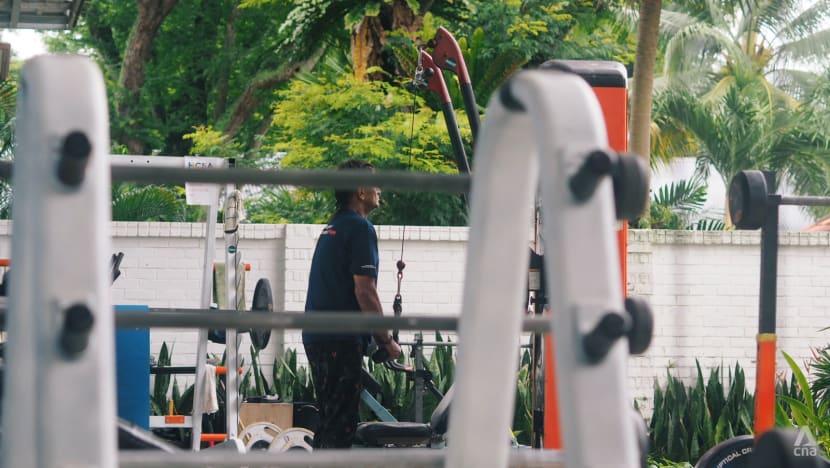
SECOND CHANCES?
Mr Kalay has faith that his application for a rental flat will be approved soon, and with that, he hopes to embark on a new phase of life.
In the meantime, he has been attending “a lot of counselling”, spanning topics like “how to talk to your son and daughter”, in hopes he would eventually have the chance to reconcile with his family.
“All the way, I never had this kind of thinking. When I (was released previously), I used to say ‘This time I will change’ just for a joke,” he admitted.
But now he really wants to change. Not just for his family but for himself, he said.
Mr Kalay’s sister, who was his only visitor during his most recent incarceration, told him: “Don’t worry, your wife only angry with you (now), but once you come out, everything will be okay,” he recalled. “So I’m also very excited.”
But asked whether he has set a date to meet his children, Mr Kalay averted his gaze. Neither has his ex-wife come around. “I always message her, but nothing. Zero,” he said.



















